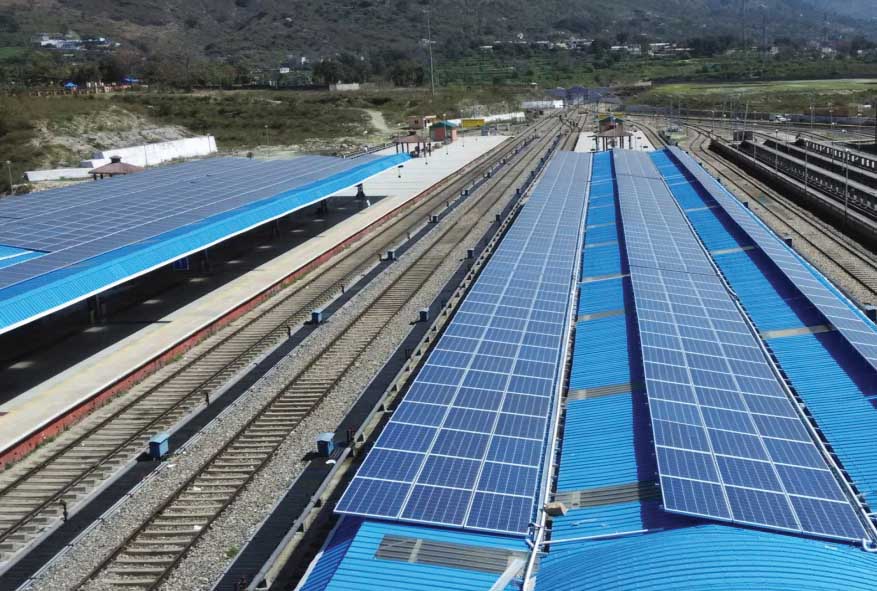Railways’ Energy efficiency plan
The Indian Railway Ministry has outlined a five-pronged plan to become carbon-neutral by 2030, as part of the country’s commitment to the United Nations Framework Convention on Climate Change. The plan aims to reduce energy consumption through efficient operations and increase the use of renewable energy.
One key component of the plan is the installation of rooftop solar panels on all railway establishments, which is expected to significantly increase the use of renewable energy in non-traction operations, such as administrative and maintenance activities. Non-traction operations currently account for over 2,100 GWh of electricity use per year, and this is projected to increase by 30% by 2030 as the Indian railway network expands.
Sustainable Buildings
The railway board also plans to ensure that buildings are compliant with the Shunya standards of net-zero emissions set by the Bureau of Energy Efficiency. This includes the adoption of sustainable cooling solutions, as well as the integration of automatic power factor correction in all railway establishments.
Energy Efficiency in Equipment and Appliances
The railway ministry is looking to induct new technology, such as artificial intelligence and the Internet of Things (IoT), to monitor and manage greenhouse gas emissions. The railway board has also sought the input of the Research Development and Standards Organization to come up with innovative ways to reduce its carbon output.
Power Quality and Restoration
On the traction front, the railways are undertaking electrification on their tracks, as well as a simultaneous shift to electric locomotives. In FY23, the railways achieved 1973 route km of electrification, which is 41% higher than the previous year. However, experts have pointed out that electrified trains, which operate through power supplied via grids, cannot truly be carbon-neutral as long as the grid itself is powered by coal instead of renewable sources.
Capacity Building and Awareness
The railway ministry has asked zonal railways to create an action plan for energy efficiency within 15 days. This includes the development of a cloud-based data monitoring and management portal, which will allow for better tracking and management of energy consumption and emissions.
Overall, the Indian railway ministry’s energy efficiency plan represents a significant step towards achieving the country’s goal of net-zero emissions by 2070. By adopting sustainable buildings, energy-efficient equipment and appliances, and increasing the use of renewable energy, the railways hope to significantly reduce their carbon output and become a leader in sustainable transportation.
Month: Current Affairs - January, 2023
Category: India Nation & States Current Affairs


